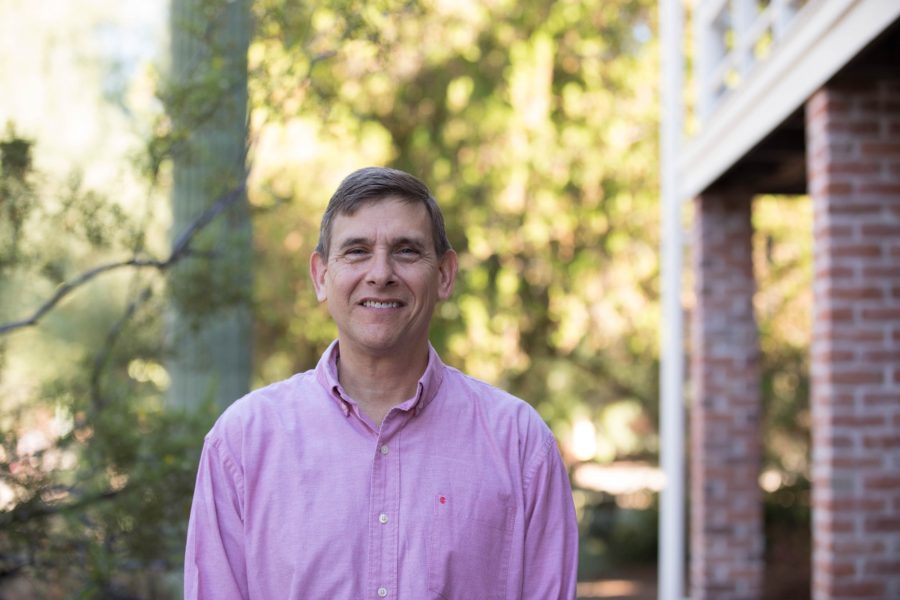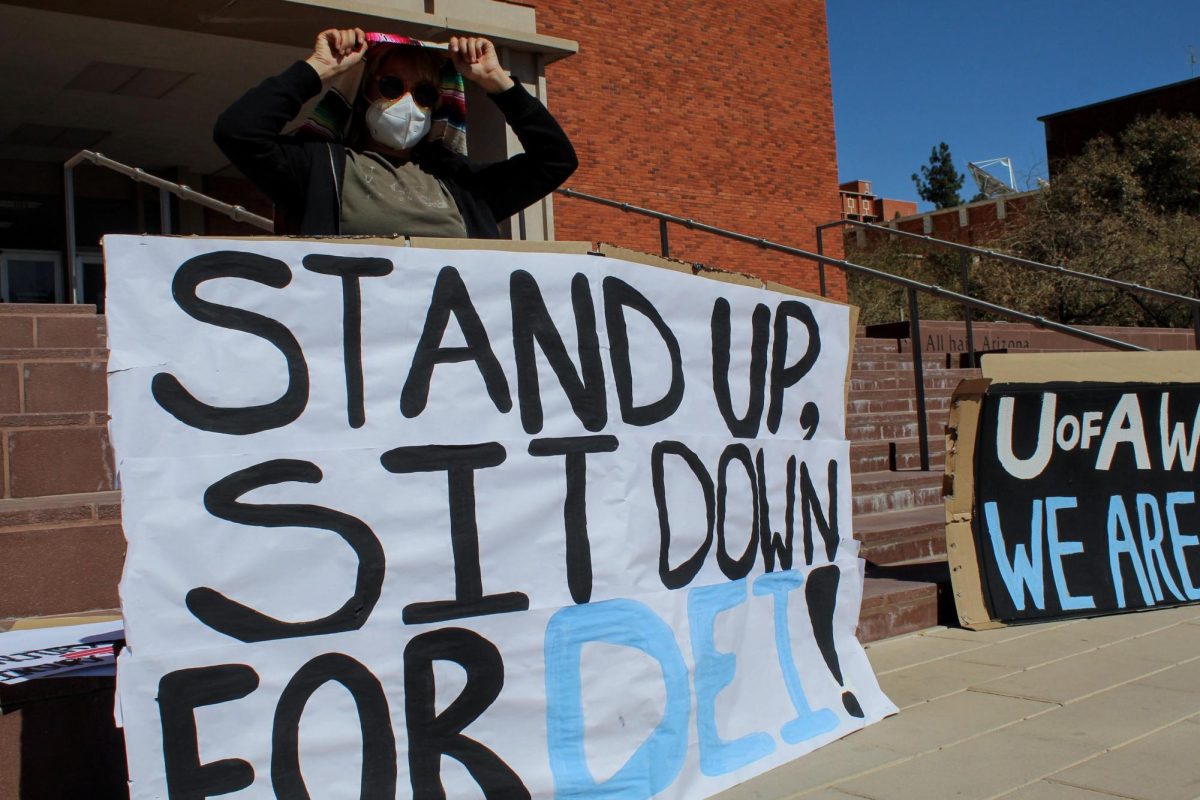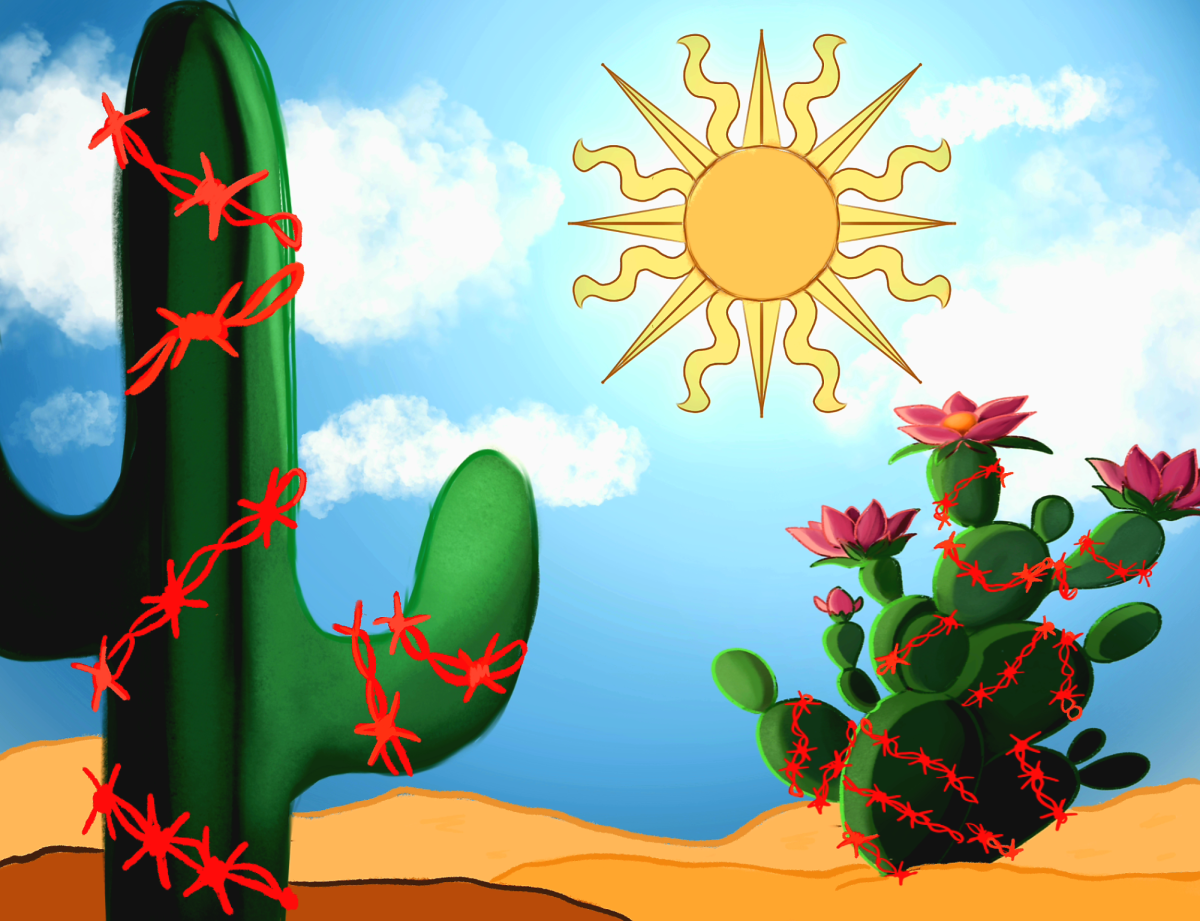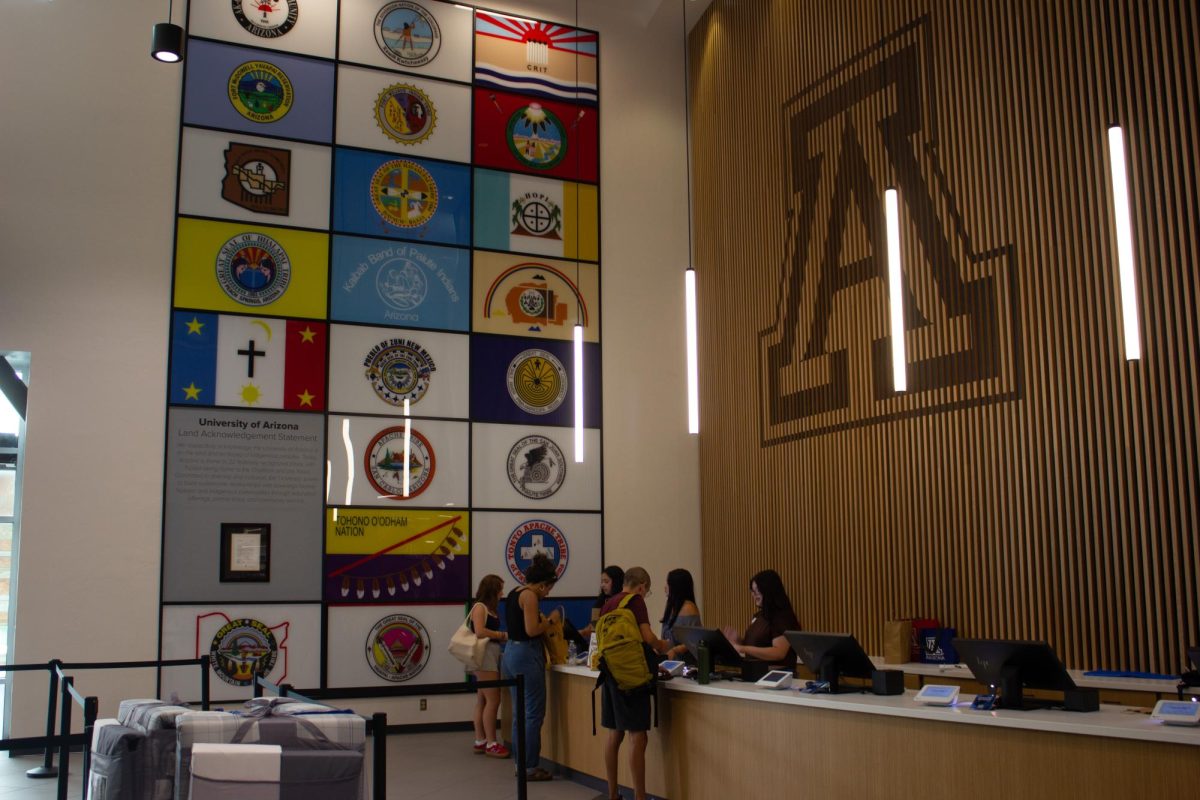University of Arizona history professor, UNESCO chair in Environmental History and former director of the UA’s Global Studies Program David Pietz is in a class of his own, winning three prestigious titles rewarding him for his seminal research in Chinese water conservation.
“Most professors apply to a number of these fellowships and grants, and you really expect to only get one,” Pietz said. “I was surprised. I got three of them!”
Pietz was one of 175 scholars to win the Guggenheim Fellowship Award, one of 27 to win a Carnegie Fellowship and was also awarded a Fulbright award to support his further research on water conservation efforts on China’s Yangtze River.
His project, titled “Death and Life on the Yangtze: Extinction, Conservation and Environmental Change in China,” is his latest work, culminating years of extensive research into Chinese river conservation, starting with field work on the Huai and Yellow rivers, now turning to research and fieldwork on the Yangtze.
RELATED: UA president releases statement regarding DACA Supreme Court ruling
“I became incredibly interested in issues of biodiversity, issues of ecological development and conservation in Chinese rivers from my studies in modern Chinese history,” Pietz said.
He looked into conservation management with the Huai River, which became his first book, then researched and wrote about the Yellow River, and is “ending the trilogy” with his Yangtze work.
Pietz is using research on two Chinese aquatic species — the now extinct Baiji dolphin and the extremely endangered finless porpoise — as catalysts to analyze networks, systems, attitudes and developments in water and environmental conservation in China.
“Part of my research project is looking at the forces that led to the extinction of the Baiji dolphin, and also looking at post-extinction effects that really have influenced marine conservation in China today,” Pietz said. “I decided that the Baiji would be a good case to use in order to look at long term changes of conservation, not only looking at river management and the water quality of the Yangtze river, but also looking at a change in China’s attitude towards the natural world.”
China’s economic development on its major rivers in the last 15 years led to harmful practices resulting in the extinction and endangerment of the Baiji dolphin and finless porpoise. However, to Pietz, China has learned lessons in conservation and water management from the loss of these two species.
“After the extinction of the dolphin, the state did commit to protecting the Yangtze river porpoise from these threats. Recently, one of the most consequential policies on the river was to ban fishing,” Pietz said. “These policy changes are symbolic of an increasing conscious of environmental health in China over the last 10 to 15 years and suggest that there are some initial steps and changes in attitudes China is taking to better water and river conservation, and environmental governance.”
Pietz intends to use funds from his awards, including a $200,000 grant from the Andrew Carnegie Fellowship, for two years of extensive travel and research, gathering information from a global network of marine biology and conservation organizations and players in order to generate an analysis of conservation efforts on the Yangtze.
“I have been and continue to plan to work with Nanjing Normal University, who have really been pioneers and led the way with conservation research on the Yangtze,” Pietz said. “I also plan on doing travel in the United States and Europe to talk with conservation biologists and other actors in the NGO world who have led both porpoise and dolphin conservation efforts in China,” Pietz said.
He said a goal is to understand China’s role in global conservation networks if a connection exists to these broader networks, or if it is conservation with Chinese characteristics.
Pietz has already found parallels and interconnections between conservation efforts on the Yangtze and in San Diego, where marine biologists from the U.S. Fish and Wildlife Service use surveying and research tactics learned from Chinese conservation efforts on the Yangtze.
“There have been innovative techniques that Chinese biologists have developed in studying the Baiji that have been adopted by marine biologists in San Diego, working with the endangered Vaquita porpoise,” Pietz said. “To me, hoping to communicate the story of China’s water conservation efforts to those who are interested in the environment, or those interested in China, this shows that there are real constructive collaborations going on.”
Pietz said he believes his work demonstrates the benefits and impacts of globalization, a topic he teaches to university undergraduates.
“Processes of globalization operate at multiple levels, from the diplomatic level to a social level, to at the level of knowledge and an exchange of scientific knowledge. … Globalization in this way can then only be a benefit, like we saw in the learning of Chinese techniques in San Diego,” he said.
To his former students, Pietz stands apart as researcher and instructor — a passionate faculty member who endlessly pursues knowledge and makes UA Global Studies students feel at home.
“One of his best qualities he has is that he is such an easy person to talk to and he is very approachable. I have had so many amazing professors, but a lot of them come across as intimidating and not a lot have the availability to talk to students and make them feel understood like Dr. Pietz can,” said Valeria Quijada, a former Global Studies and Spanish translation student who had Pietz her sophomore year.
“He’s never forgotten what it means to be a student, even now that he has a Ph.D. and has won numerous awards and done amazing things. And you can feel that,” Quijada said.
RELATED: UA physician and medical student bike across the country for U.S. healthcare system
Pietz’s research, aside from teaching lessons in globalization, has also bolstered the UA’s solidified ranking as the world’s leader in water resource and conservation research. Investigating water conservation as a social sciences expert gave Pietz a unique perspective in how an interdisciplinary approach can mean innovation for the university’s water resource and conservation research efforts.
“I hope whatever small contribution my research makes can help us at [the College of Social and Behavioral Sciences] and help the university make a claim to expertise in water research helping worldwide water conservation efforts,” Pietz said. “I also think for us as an institution to acknowledge our expertise and ranking, we need to couple the work and research made in the biophysical sciences with that in the social sciences.”
Above all else, as a historian, Pietz sees what water conservation not only means for physical science and Chinese river systems, but what it means for a globalized world and humanity everywhere.
According to Pietz, “water conservation has such enormous consequences to not only the physical, but the human dimension of our existence.”
Follow Ian Tisdale on Twitter









